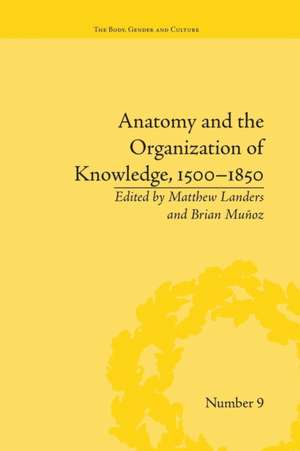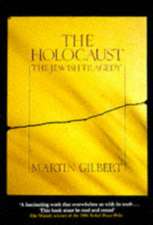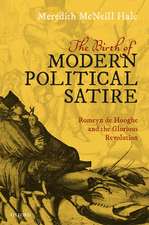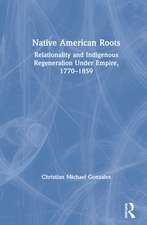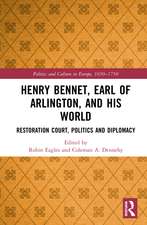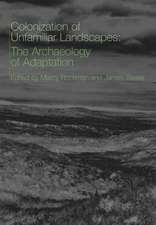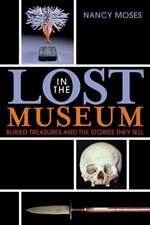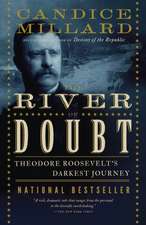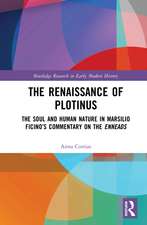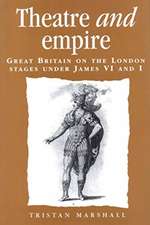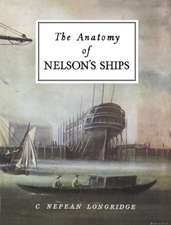Anatomy and the Organization of Knowledge, 1500–1850: "The Body, Gender and Culture"
Editat de Brian Muñoz, Matthew Landersen Limba Engleză Paperback – 21 ian 2016
| Toate formatele și edițiile | Preț | Express |
|---|---|---|
| Paperback (1) | 449.41 lei 6-8 săpt. | |
| Taylor & Francis – 21 ian 2016 | 449.41 lei 6-8 săpt. | |
| Hardback (1) | 1112.83 lei 6-8 săpt. | |
| Taylor & Francis – iul 2012 | 1112.83 lei 6-8 săpt. |
Preț: 449.41 lei
Nou
Puncte Express: 674
Preț estimativ în valută:
86.02€ • 93.47$ • 72.31£
86.02€ • 93.47$ • 72.31£
Carte tipărită la comandă
Livrare economică 21 aprilie-05 mai
Preluare comenzi: 021 569.72.76
Specificații
ISBN-13: 9781138664623
ISBN-10: 1138664626
Pagini: 272
Dimensiuni: 156 x 234 x 14 mm
Greutate: 0.45 kg
Ediția:1
Editura: Taylor & Francis
Colecția Routledge
Seria "The Body, Gender and Culture"
Locul publicării:Oxford, United Kingdom
ISBN-10: 1138664626
Pagini: 272
Dimensiuni: 156 x 234 x 14 mm
Greutate: 0.45 kg
Ediția:1
Editura: Taylor & Francis
Colecția Routledge
Seria "The Body, Gender and Culture"
Locul publicării:Oxford, United Kingdom
Cuprins
Introduction, Matthew Landers; Part 1 The Body as a Map; Chapter 1 Early Modern Dissection as a Model of Organization, Matthew Landers; Chapter 2 ‘Who Will Not Force a Mad Man to be Let Blood?’: Circulation and Trade in the Early Eighteenth Century, Amy Witherbee; Chapter 3 Earth’s Intelligent Body: Subterranean Systems and the Circulation of Knowledge, or, the Radius Subtending Circumnavigation, Kevin L. Cope; Chapter 4 ‘After an Unwonted Manner’: Anatomy and Poetical Organization in Early Modern England, Mauro Spicci; Chapter 5 Subtle Bodies: The Limits of Categories in Girolamo Cardano’s De Subtilitate, Sarah Parker; Part 2 The Collective Body; Chapter 6 Mirroring, Anatomy, Transparency: The Collective Body and the Co-Opted Individual in Spenser, Hobbes and Bunyan, Nick Davis; Chapter 7 From Human to Political Body and Soul: Materialism and Mortalism in the Political Theory of Thomas Hobbes, Ionut Untea; Chapter 8 Visualizing the Fibre-Woven Body: Nehemiah Grew’s Plant Anatomy and the Emergence of the Fibre Body, Hisao Ishizuka; Chapter 9 Forms of Materialist Embodiment, Charles T. Wolfe; Part 3 Bodies Visualized; Chapter 10 Visualizing Monsters: Anatomy as a Regulatory System, Touba Ghadessi; Chapter 11 Anatomy, Newtonian Physiology and Learned Culture: The Myotomia Reformata and its Context within Georgian Scholarship, Craig Ashley Hanson; Chapter 12 Art and Medicine: Creative Complicity Between Artistic Representation and Research, Filippo Pierpaolo Marino; Chapter 13 The Internal Environment: Claude Bernard’s Concept and its Representation in Fantastic Voyage, Jérôme Goffette, Jonathan Simon;
Notă biografică
Matthew Landers is an Assistant Professor of Humanities at the University of Puerto Rico, Mayagüez, where he teaches courses in eighteenth-century British literature and the Enlightenment. He is currently working on a manuscript that examines the relationship between anatomy, philosophy and literature in Europe during the seventeenth and eighteenth centuries. In addition, he has just started work on a new project that reconstructs the development of the word ‘culture’ in the eighteenth century. He regularly collaborates in the creation of interdisciplinary courses that combine the concerns of the humanities with those of the biological and physical sciences.,Brian Muñoz (co-editor) is a doctor of philosophy from the University of Malaga, Spain (2002) and from the University of Paris X Nanterre, France (2007). He worked as an assistant professor at the University of Lyon I Claude Bernard until 2004. He was a professor at the University of Puerto Rico from 2007 to 2012. Currently he is a collaborative researcher with S2HEP (Science et société, Historicité, Education et Pratiques, University of Lyon and Ecole Normale Supérieur de Lyon). His research areas are contemporary and modern philosophy. His work with S2HEP deals with body and health transformations, especially in neuroethics. He has published several peer-reviewed essays and has arranged numerous conferences in an international context.
Descriere
Across early modern Europe, the growing scientific practice of dissection prompted new and insightful ideas about the human body. This collection of essays explores the impact of anatomical knowledge on wider issues of learning and culture.
